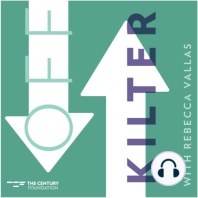60 min listen

How to Put People at the Center of Policy Change
How to Put People at the Center of Policy Change
ratings:
Length:
60 minutes
Released:
Feb 25, 2022
Format:
Podcast episode
Description
Last month, the newly launched Congressional Progressive Staff Association published a survey of more than five hundred Congressional staff. The results were damning. Half of Capitol Hill staffers who weren’t in management reported their pay was so low they were struggling to make ends meet. Roughly one in four of those who weren’t managers said they didn't have the equivalent of even one month's rent in the bank in the case of an emergency. And this despite routinely working twelve-hour days and weekends. The survey’s troubling findings come as a viral Instagram account called “Dear White Staffers” has been drawing new levels of national attention to the low pay, poor working conditions, and toxic workplace environment that is often even more pervasive for staffers of color on the Hill. But a critical point that this growing national conversation demands is that the problem isn’t limited to Capitol Hill. Low starting salaries at many of the think tanks and policy organizations that shape public policy only serve to compound an existing lack of pipelines into public policy jobs for the communities most impacted. Another major contributing factor is a hiring culture that continues a cycle of exclusion—including the unstated but incredibly pervasive limiting belief that people with lived experience of societal problems like poverty and rampant inequality couldn’t possibly have anything to offer when it comes to shaping the policies and programs that directly impact their communities. Meanwhile, a new organization called The Next 100—housed within The Century Foundation—is turning the exclusionary nature of Washington policymaking on its head. Now in its second cohort, the Next 100 has created a model for what recruiting, hiring, and supporting diverse talent in the policy space can look like—and more generally for breaking down deeply embedded barriers to inclusion of diverse perspectives in policymaking, with broad applicability for think tanks and policy organizations across sectors, as well as Capitol Hill. So for a look at how we create a policy sector where those with the most at stake are driving the change they and their communities want to see, for this week’s Off-Kilter—now that we’re back up and running for 2022—Rebecca sat down with Emma Vadehra, executive director of Next 100, and two of the members of the organization’s current cohort—Lindsey Cazessus and Chantal Hinds—for the first in a series of conversations with the organization’s Policy Entrepreneurs. For more: Learn more about The Next 100 in this video featuring executive director Emma Vadehra and several of the organization’s past and present policy entrepreneurs For more from Lindsey, read her recent essay, “The Myth of the Undeserving Poor Should End with the Pandemic” and follow her on Twitter @lindseycazessus For more from Chantal, check out her recent article, “A Feature, Not a Bug: The Foster System’s History of Othering” and follow her on Twitter @c_hinds_ For more from Emma Vadehra, read her recent piece in the Stanford Social Innovation Review on reimagining think tanks and follow her on Twitter @emmavadehra
Released:
Feb 25, 2022
Format:
Podcast episode
Titles in the series (100)
How President-Elect Biden Could Cut Poverty in Half Without the GOP -- Feat. Vox's Dylan Matthews: Vox's Dylan Matthews breaks down everything you need to know about "budget reconciliation" -- a tool that if used strategically in the Senate could mean Dems' fragile majority could be enough to create a pathway for powerful policy change at a... by OFF-KILTER with Rebecca Vallas